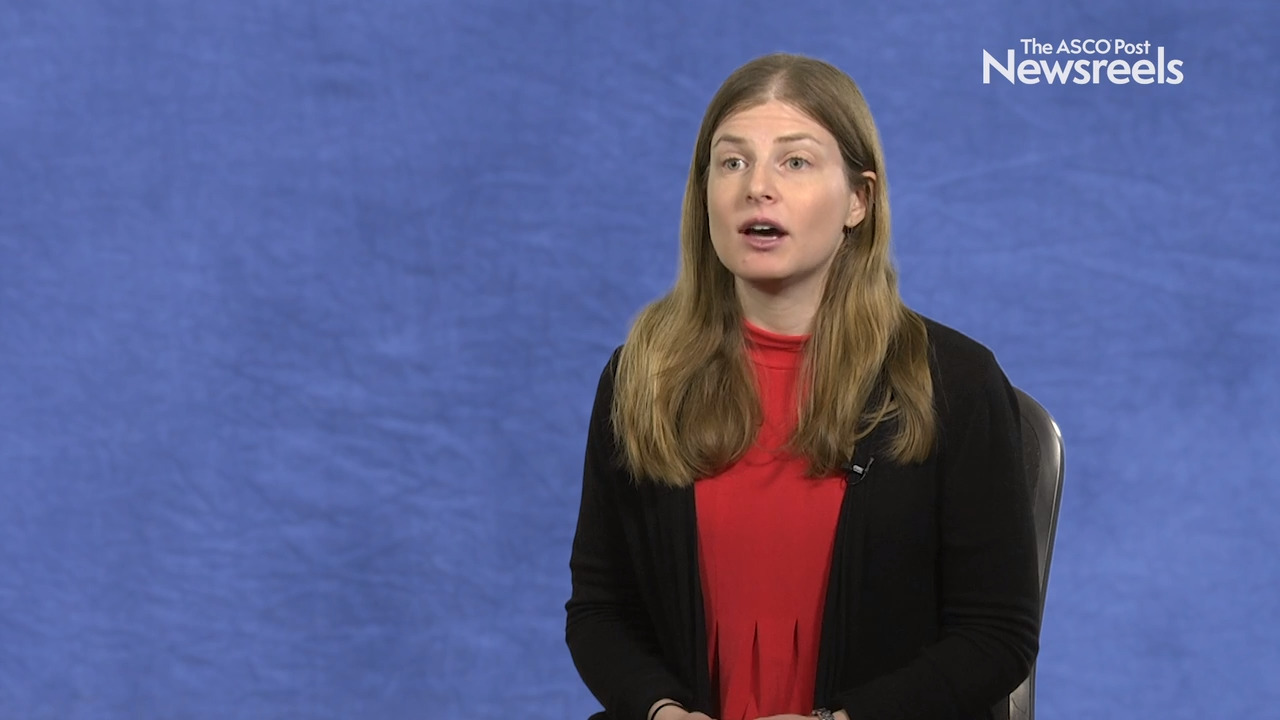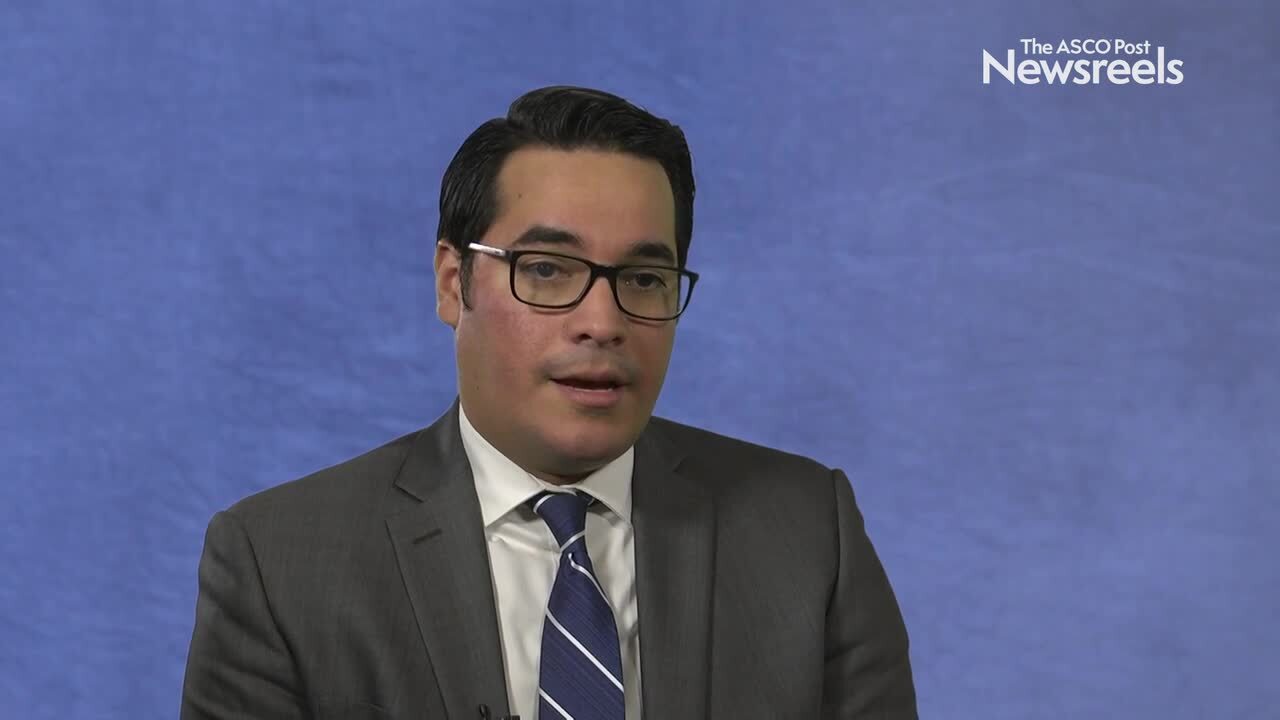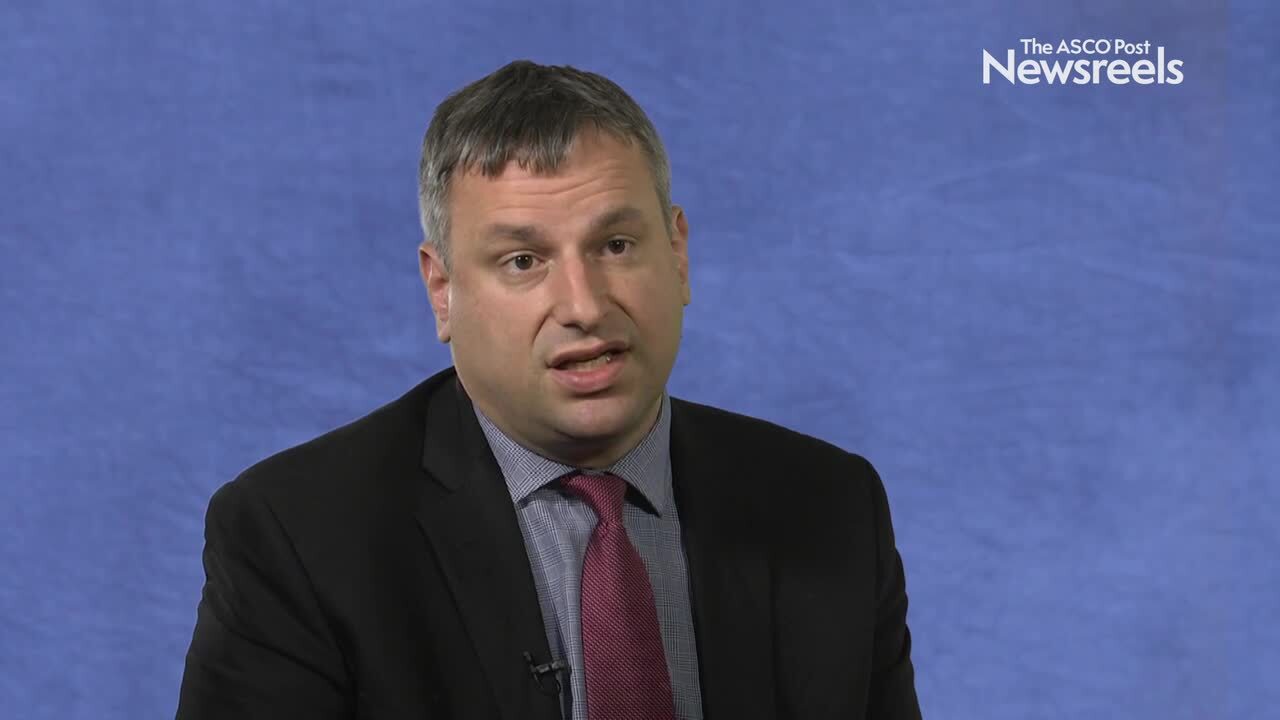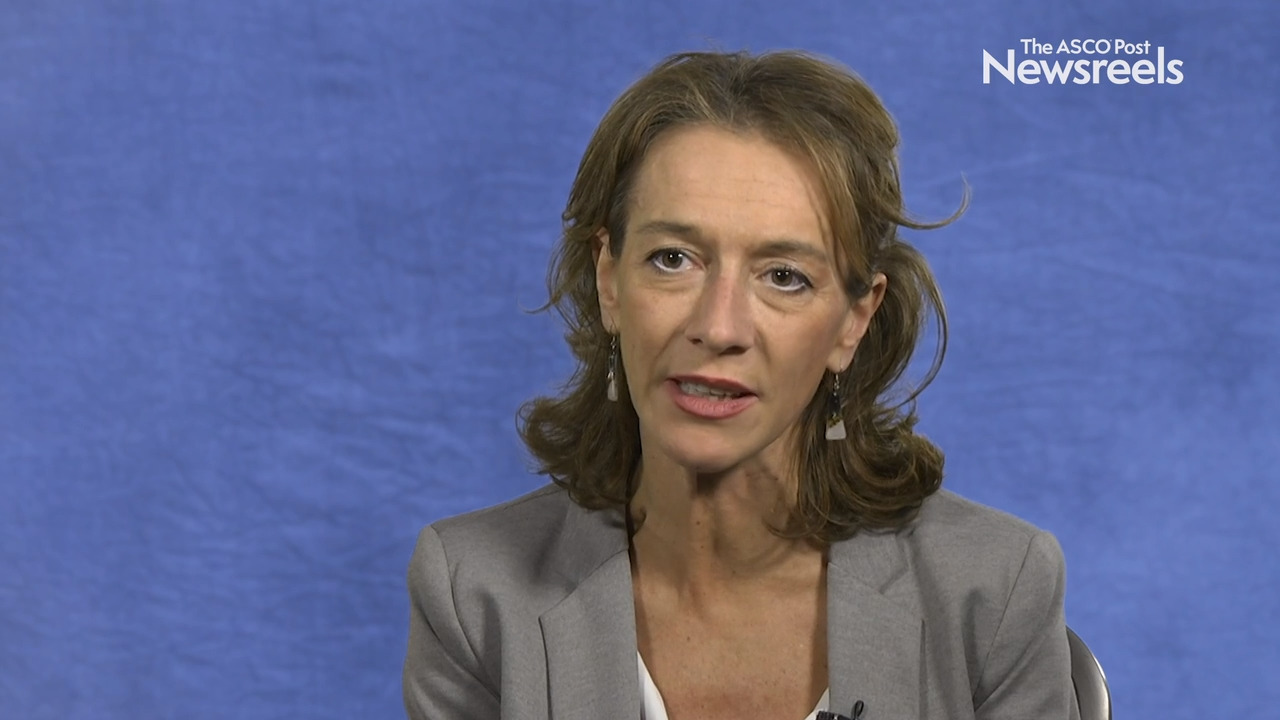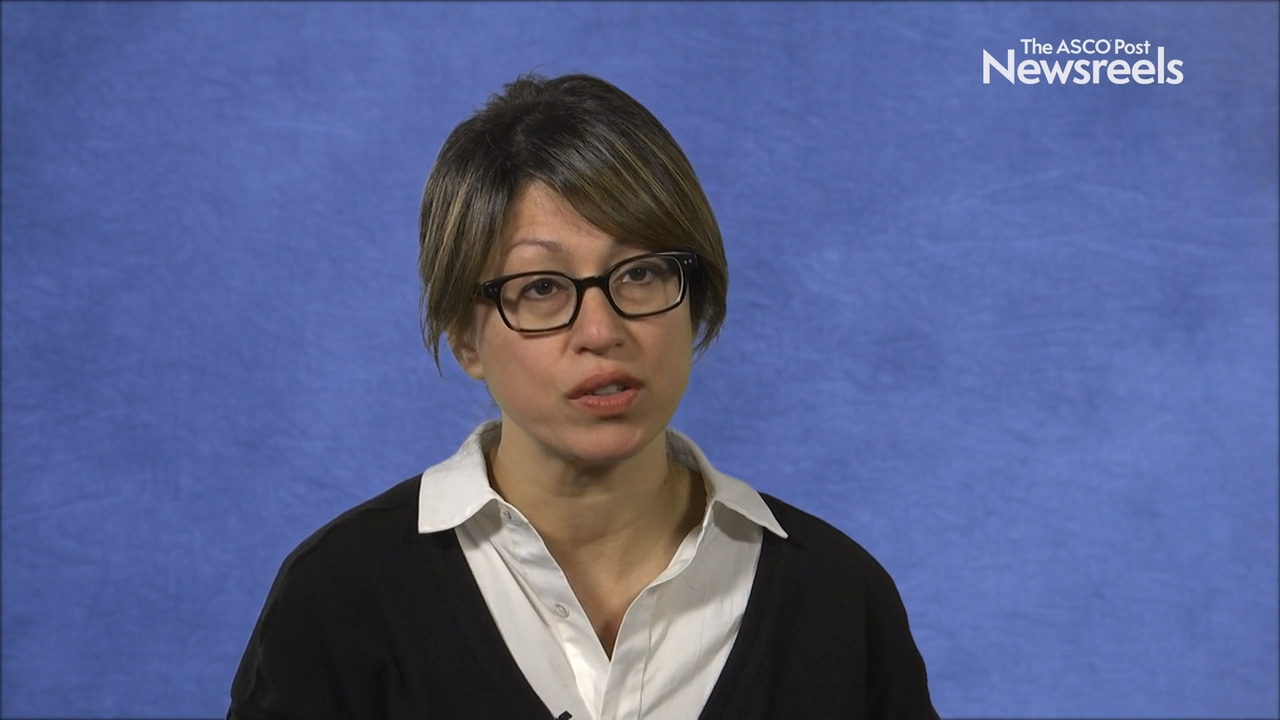Reshma Jagsi, MD, DPhil, and Rachel A. Freedman, MD, MPH, on Over- and Undertreatment: Getting It Right
2018 San Antonio Breast Cancer Symposium
Reshma Jagsi, MD, DPhil, of the University of Michigan, and Rachel A. Freedman, MD, MPH, of Dana-Farber Cancer Institute, discuss the twin challenges of overtreating people with cancer and the missed opportunities and dangers of undertreatment.
Shoshana M. Rosenberg, ScD, of Dana-Farber Cancer Institute, discusses her study findings on the lower quality of life associated with mastectomy, and the need for intervention and timely referrals to supportive resources, especially for underserved populations (Abstract GS6-04).
Roberto A. Leon-Ferre, MD, of the Mayo Clinic, discusses study findings on the effectiveness of oxybutynin in decreasing the frequency and severity of hot flashes (Abstract GS6-01).
Dejan Juric, MD, of Massachusetts General Hospital, discusses phase III study findings on liquid biopsy–based assessment of PIK3CA mutational status and the combination of the selective PI3K-alpha inhibitor alpelisib plus fulvestrant in the treatment of advanced breast cancer (Abstract GS3-08).
Eva M. Ciruelos, MD, PhD, of the University Hospital 12 de Octubre and the SOLTI Group, discusses study findings on palbociclib and trastuzumab in postmenopausal patients with HER2-positive metastatic breast cancer (Abstract PD3-03).
Shanu Modi, MD, of Memorial Sloan Kettering Cancer Center, discusses study findings from a large phase I study on trastuzumab deruxtecan in patients with low HER2-expressing breast cancer (Abstract P6-17-02).
